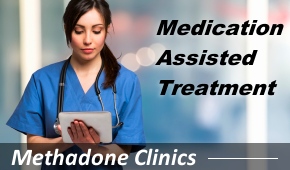 Methadone programs and doctors who prescribe buprenorphine serve a very important function in helping the country cope with the opioid crisis. They are also a life-saving link for patients who have suffered for years with an overwhelming addiction.
Methadone programs and doctors who prescribe buprenorphine serve a very important function in helping the country cope with the opioid crisis. They are also a life-saving link for patients who have suffered for years with an overwhelming addiction.
Operating a methadone clinic or buprenorphine/suboxone practice is typically a complex endeavor. Clinics that offer medication-assisted treatment (MAT) must comply with a myriad of mandates and policy requirements from the DEA, the local State Methadone Authority, accreditation organizations like CARF and JCAH, SAMHSA (the Substance Abuse and Mental Health Services Administration}, and 3rd party payers who help fund treatment services.
Patients understand that a well-run treatment clinic offers many benefits. Quality services are only delivered when there is an organizational commitment to helping people while also being able to meet all of the operational requirements such as timely documentation of services (paperwork) and appropriate support of staff & counselors,
Sometimes patients will complain about “so many clinic rules” although many patients appreciate their clinic’s dedication to professionalism and its ability to meet the standards of good quality care. Within most treatment facilities are several key staff who oversee its daily operation and the provision of services. These are the Clinical Director, the Medical Director or primary prescribing physician, the Nurse Supervisor, and possibly clinical staff Team Leaders who do the work of coordinating the clinics many daily activities.
While the list of clinic rules can seem long, there is nearly always an important underlying reason for that rule to exist. Most methadone clinics distribute a Handbook for clients that outlines their rights as an opioid treatment patient as well as guidelines for obtaining dosage adjustments and progressing successfully through treatment.
Opioid treatment, and medication-assistance in particular, must be carefully monitored. This is to insure patient safety and to minimize the risk of medication errors. Please support your local methadone or suboxone clinic with words of encouragement and positive feedback when it is earned. Conversely, it is important to speak up as well if serious problems are occurring. Always make an effort to communicate first with the clinic’s clinical and administrative staff if experiencing a problem. If an honest effort to resolve an issue in this manner is not productive, then contacting one’s local State Methadone Authority is sometimes a logical next step for addressing an important concern.

 Follow
Follow

 Acadia Healthcare is a leading provider of addiction treatment and behavioral healthcare services in the USA, the UK, and Puerto Rico. Worldwide, they operate a network of 593 facilities with 18,100 beds in 40 U.S. States. Of these locations, Acadia offer medication-assisted opioid treatment in 127 of their facilities.
Acadia Healthcare is a leading provider of addiction treatment and behavioral healthcare services in the USA, the UK, and Puerto Rico. Worldwide, they operate a network of 593 facilities with 18,100 beds in 40 U.S. States. Of these locations, Acadia offer medication-assisted opioid treatment in 127 of their facilities. There are currently well over 1000 methadone clinics in operation across the United States and many more throughout the world. Methadone has been a leading treatment intervention for opioid addiction for more than 40 years. Methadone is an FDA-approved medication and it’s use in treating opioid addiction has been identified by SAMHSA as a best practice, evidence-based treatment approach.
There are currently well over 1000 methadone clinics in operation across the United States and many more throughout the world. Methadone has been a leading treatment intervention for opioid addiction for more than 40 years. Methadone is an FDA-approved medication and it’s use in treating opioid addiction has been identified by SAMHSA as a best practice, evidence-based treatment approach. NBC News
NBC News


